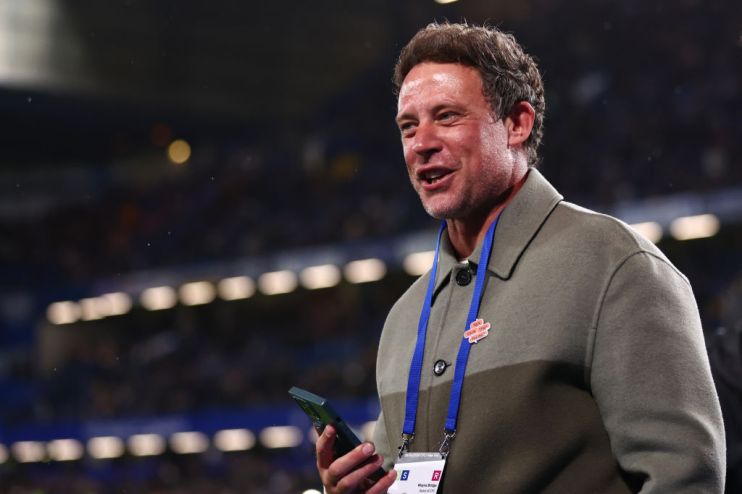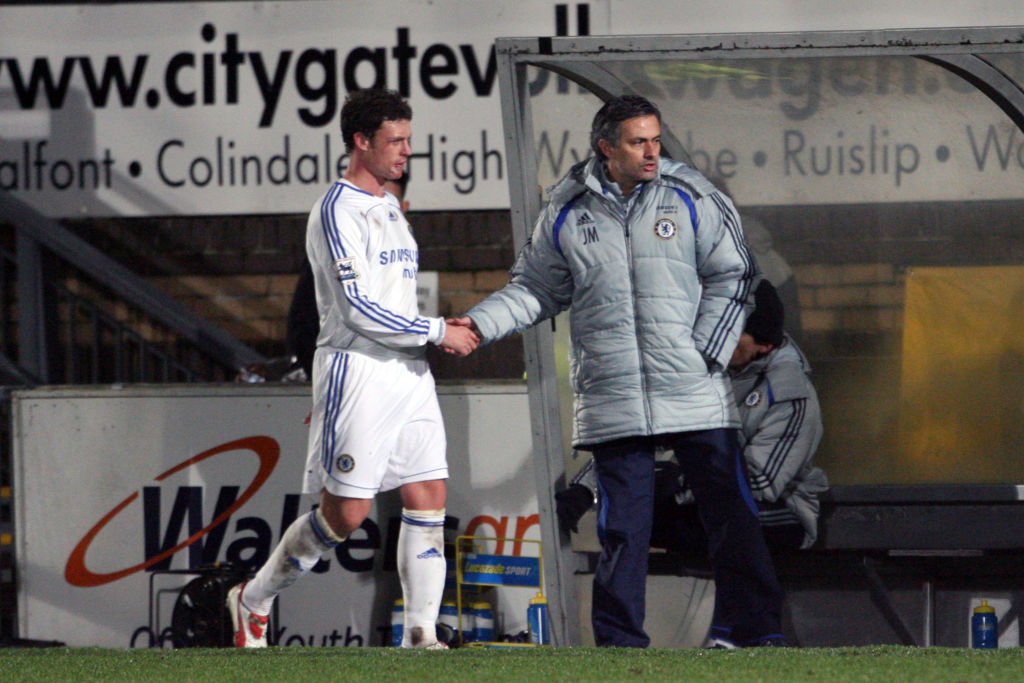Wayne Bridge interview: I wish I’d paid more attention to my teammates’ mental health

With a Premier League title, 36 caps for England and a famous winning goal for Chelsea in the Champions League, Wayne Bridge had a career which put him in the media spotlight and under pressure to succeed.
Since retiring, the 43-year-old has taken a leading role in raising awareness about mental health. He has spoken out about supporting his wife Frankie Bridge, a member of pop group The Saturdays, through her struggles with anxiety and depression.
Ahead of Chelsea’s joint campaign with Three UK and Samaritans to encourage football fans to “talk more”, Bridge revealed that he wished he offered more support to teammates during his playing career.
“If I look back at some of the things that I’ve seen, and I could turn that time, I probably would have gone up to a few more players and probably put my arm around them,” he told City A.M.
“As a footballer, you’re under a lot of scrutiny in terms of performance and money and everything, so it can be hard to deal with.”
Some Premier League players have spoken openly about struggles with mental health in the last year.
Dele Alli talked about his “battle” with mental health struggles last summer, while Richarlison opened up about morbid thoughts in an interview with a Brazilian outlet last month.
Bridge praised the players for speaking out as they “would have helped a lot of people they don’t even know about”.
“I’m not going to sit here and tell footballers they have to come out and speak out openly straight away,” he said.
“If ones are getting help, and if some of them did talk about it, I think it would help so many people. This is such a big sport.”
In other sports, top athletes have pulled out of events and taken long breaks to focus on their mental health.
England captain Ben Stokes quit cricket for six months in 2021, four-time gold medallist Simone Biles took two years out of gymnastics after the Tokyo Olympics, while Japanese tennis player Naomi Osaka has withdrawn from a number of tournaments over the last three years.
“For me, the tough people are the ones that can just stand up and say I need time,” Bridge added.
“If you look, I’m pretty sure a lot of them took a lot of flak when they come out and do that. They’re tough people to do that. I think it’s hard for a footballer to come out and do it.”
Managers are normally responsible for understanding their players’ mentalities and for finding ways to motivate them.
Glenn Hoddle and Jose Mourinho were cited by Bridge as the two coaches he worked with who had the best man management – but “not [Roberto] Mancini”, his former Manchester City boss.

He praised Hoddle’s approach to player psychology while playing at Southampton.
“He brought in people to help with a visualisation technique that you would do for your game. He was approachable as well at the same time,” Bridge said.
The former England international said the campaign to “talk more” could help various people to address issues, but added that mental health awareness needs to “start from schools”.
“I think from when I look back to school, I was probably affected a bit by school with self confidence and just felt a bit stupid,” he said.
“We need to be who we are, and not put down for being who we are. I just think talking to someone is a start of kind helping you along the way.”